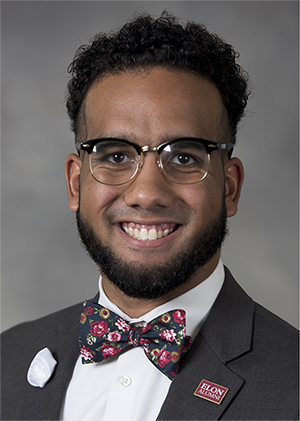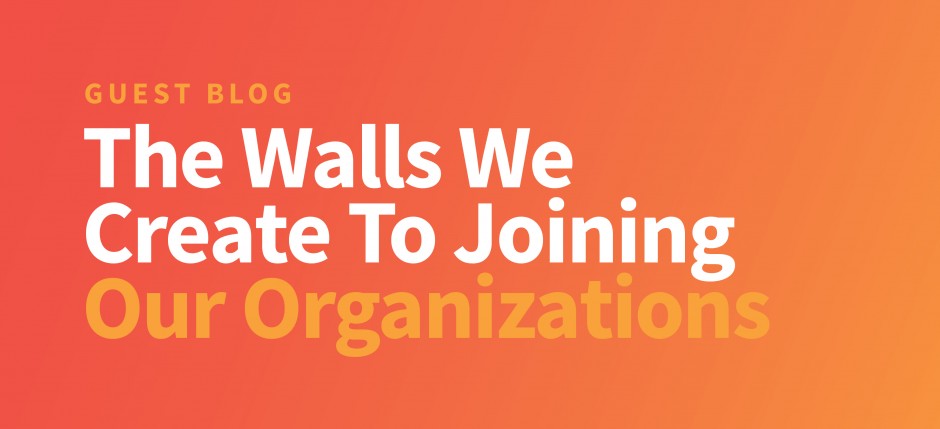GUEST BLOG: The Walls We Create to Joining Our Organizations
by Alonzo Cee
As some would say, joining culturally-based fraternal organizations is a serious matter. A sentiment that can sometimes reside in the fear of having folks join for the wrong reasons. And this fear is legitimate for organizations that are smaller compared to their historically white counterparts. To also be tied to a long history of social justice and uplifting people of color, it becomes imperative to continue the legacy and only allow those who align with the values of our organizations to join.
While this may sound great in theory as a way to protect and safeguard our organizations, in practice it actually creates more walls and overcomplicates the process to join. Less related to intake, however, it is that our unwritten rules are quite simply outdated. The ways that we as members weed out those that are interested before they even make it to applying to our organizations is problematic. The problem is entrenched around assumptions of what prospective members are supposed to know. The reality is that students may not be legacies or may not have grown up with these organizations present in their lives before getting to college.
In my case, Alpha skipped a generation in my family. My grandfather served as a Regional Vice-President before I was even born and passed away when I was ten. My father never joined, and my mother is from Europe and only knew of Greek life through what was on the news or in movies. I use this to say that when I went to Elon University, I did not know anything about NPHC or Alpha Phi Alpha Fraternity, Inc. I did not know of the history, the traditions, the service, or the commitment to uplifting humanity. I did not know what discretion meant and that I was not supposed to show visible interest (I did not know how to show interest in general). I did not know about the lifelong commitment, and I did not know of the unwritten rules to joining these prestigious organizations.
What I knew was this. I saw Black men that were a part of something bigger than just themselves. I saw Black men who strived to be leaders and advocates that served the community. That is why I joined. I was thankful for the opportunity and thankful for my prophytes seeing the value that I was going to add to the organization. I was thankful that even though I was ignorant to some of the unwritten rules, I was given a chance. This gave me access to a platform and countless opportunities inside and outside of Elon to positively impact communities.
It is understandable to want to protect or safeguard our organizations, while also upholding the traditions and history (to a certain extent). However, to expect that prospective members continue to know these nuances of joining is unreasonable and hurts our organizations’ ability to recruit quality members.
We sometimes close the door on prospective members before opening it, not realizing the ways in which they could have positively contributed to our purpose. As members of culturally-based fraternal organizations, we have to do better with recruiting members, instead of setting incredibly high standards that we rarely communicate in the first place. Standards that often end up being greater than those we have for folks currently in our own organizations. Instead, I have some suggestions that may be helpful, especially in being more open-minded:
- Re-evaluate your expectations (especially if they are higher than current members):
- What do you expect of your prospective members and do you expect the same of your current members?
- Reflect back to when you were a prospective member:
- What were your feelings/emotions?
- How did you learn of the unwritten rules?
- Refrain from thinking only certain “types” of people join your organization:
- Instead, make a list of the characteristics that quality members have – what are they involved in, what do they bring to the table, etc.)
- Reconsider what recruitment means for culturally-based fraternal organizations:
- Understanding quantity drives quality – the more people we meet, the more relationships we build, the more we can decipher between what’s quality and what’s not
Let’s be clear, when I say recruitment, I’m not talking about Panhellenic or IFC. It looks different for us. Recruiting members is not something to be thought of with a negative connotation. For organizations that already struggle with numbers, we cannot afford to think harder, when we could be thinking smarter. Besides, the more quality members we have, the more impactful our organizations will be.
 About Alonzo Cee:Alonzo Cee was born in Harlem, New York City and is pursuing a Masters of Arts in Higher Education at Elon University. He currently works for the Center for Leadership. He earned his Bachelor’s of Science in Statistics at Elon University as well. Alonzo was initiated into the Sigma Delta Chapter of Alpha Phi Alpha Fraternity, Inc. in the fall of 2015. Alonzo serves as a member of Phired Up’s Culturally Based Fraternal Growth Committee.
About Alonzo Cee:Alonzo Cee was born in Harlem, New York City and is pursuing a Masters of Arts in Higher Education at Elon University. He currently works for the Center for Leadership. He earned his Bachelor’s of Science in Statistics at Elon University as well. Alonzo was initiated into the Sigma Delta Chapter of Alpha Phi Alpha Fraternity, Inc. in the fall of 2015. Alonzo serves as a member of Phired Up’s Culturally Based Fraternal Growth Committee.

